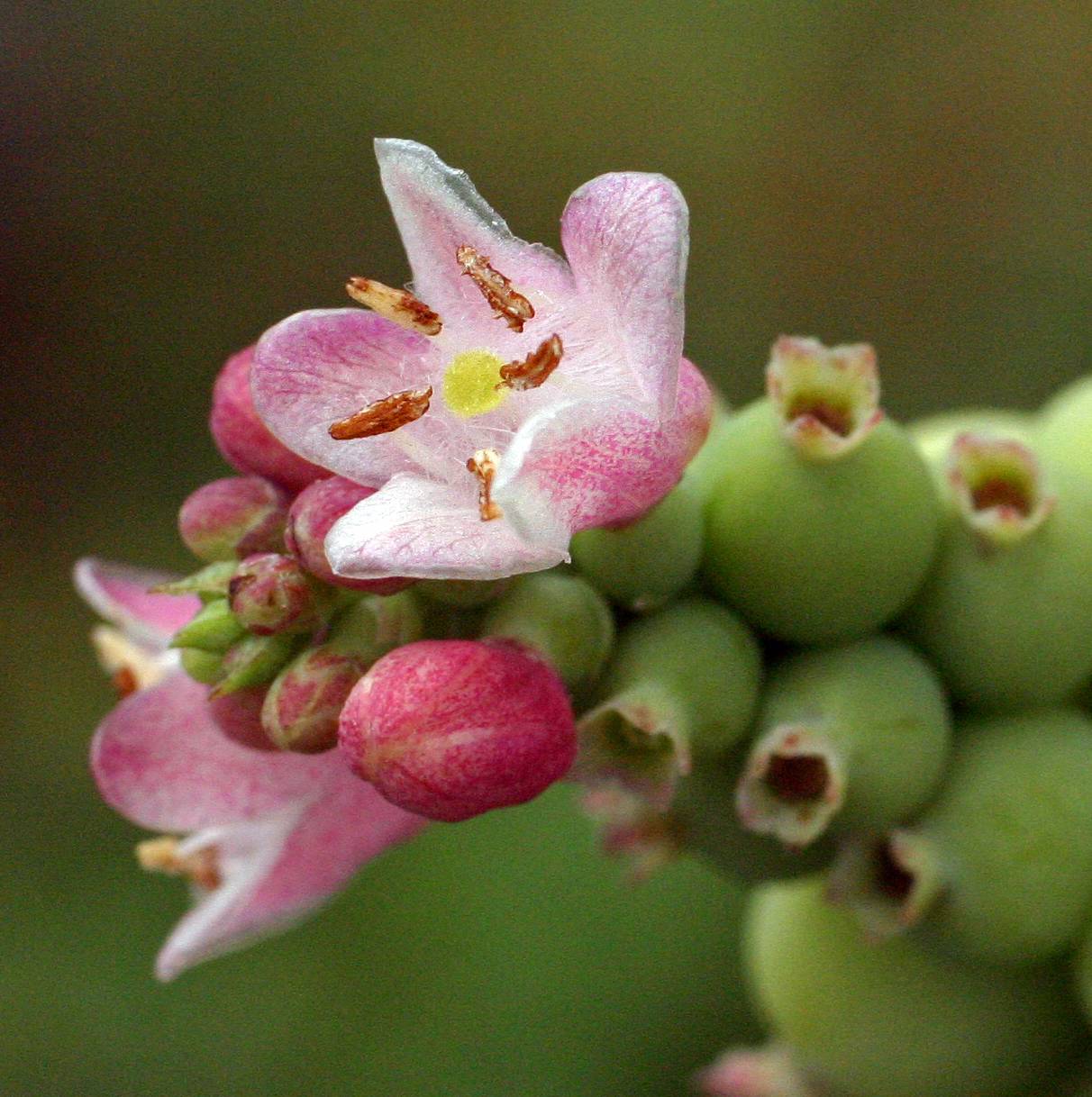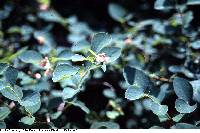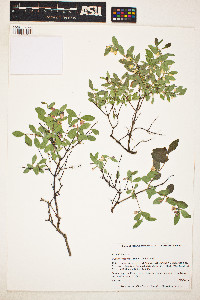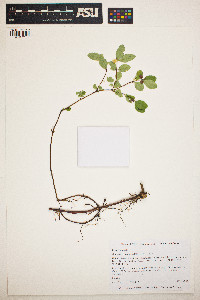Shrub 30 cm - 1 m tall
Leaves: opposite, dull grayish green, 2 - 5 cm long, egg-shaped to oval, sometimes lobed, hairy beneath.
Flowers: stalked, in pairs or in small clusters. Corolla five-lobed, pinkish white, 5 - 9 mm long, bell-shaped, swollen on one side. Lobes half as long or equal to tube. Style included within the corolla.
Fruit: berry-like (drupe), in clusters, white to greenish white, 6 - 15 mm long, waxy. There are two stones inside each drupe.
Twigs: hollow, finely hairy or hairless when young.
Similar species: Symphoricarpos occidentalis is similar but has stalkless flowers with styles exserted from the corolla. Symphoricarpos orbiculatus is also similar but has smaller, greenish to purplish corollas (to 4 mm long) and drupes that are coral-pink to purple. The leaves of the variety S. albus var. laevigatus are typically hairless beneath.
Flowering: June
Habitat and ecology: Typically found on cliff edges and along roadsides, but rare in the Chicago Region.
Occurence in the Chicago region: native
Etymology: Symphoricarpos comes from the Greek words symphoreo, meaning "born together," and karpos, meaning fruit (in reference to the clustered fruits). Albus means white.
Author: The Morton Arboretum




